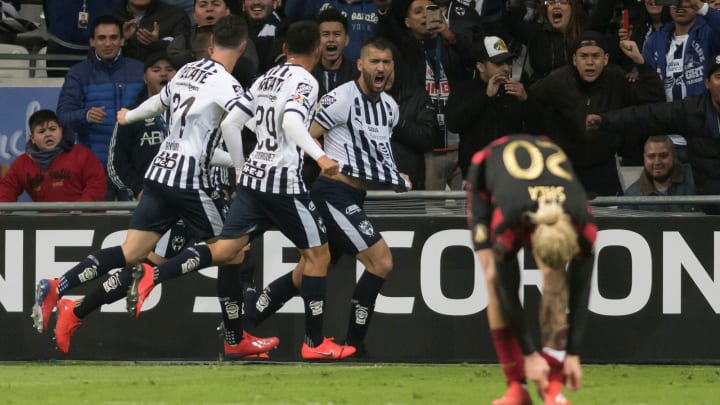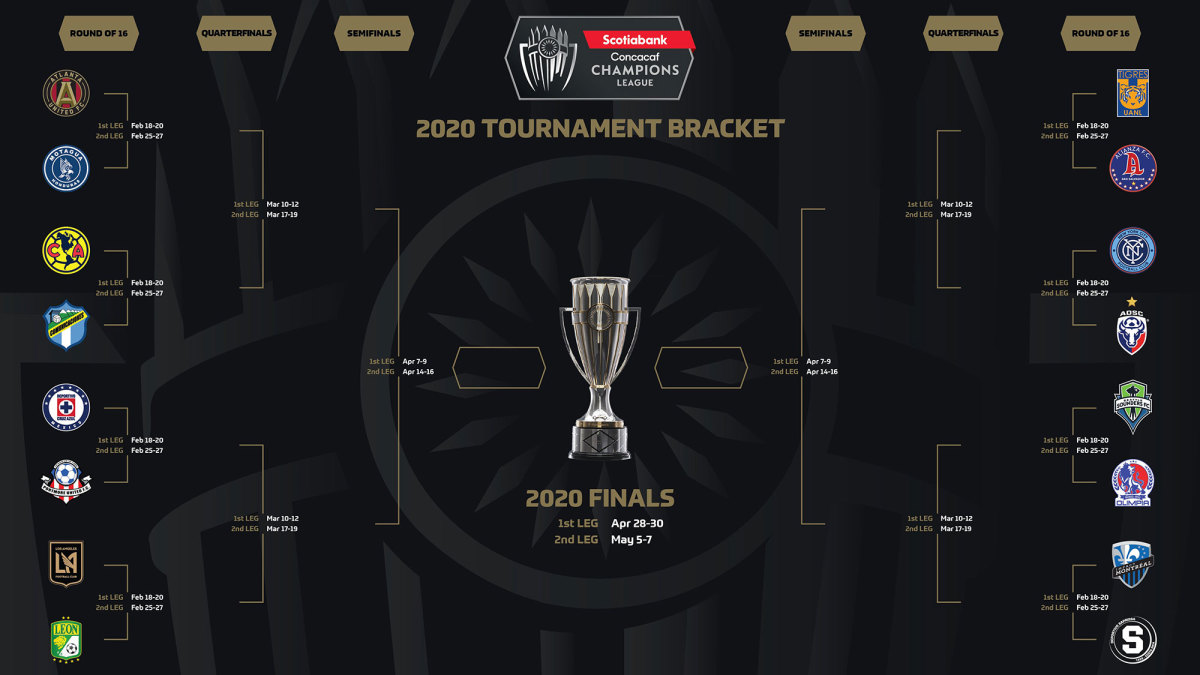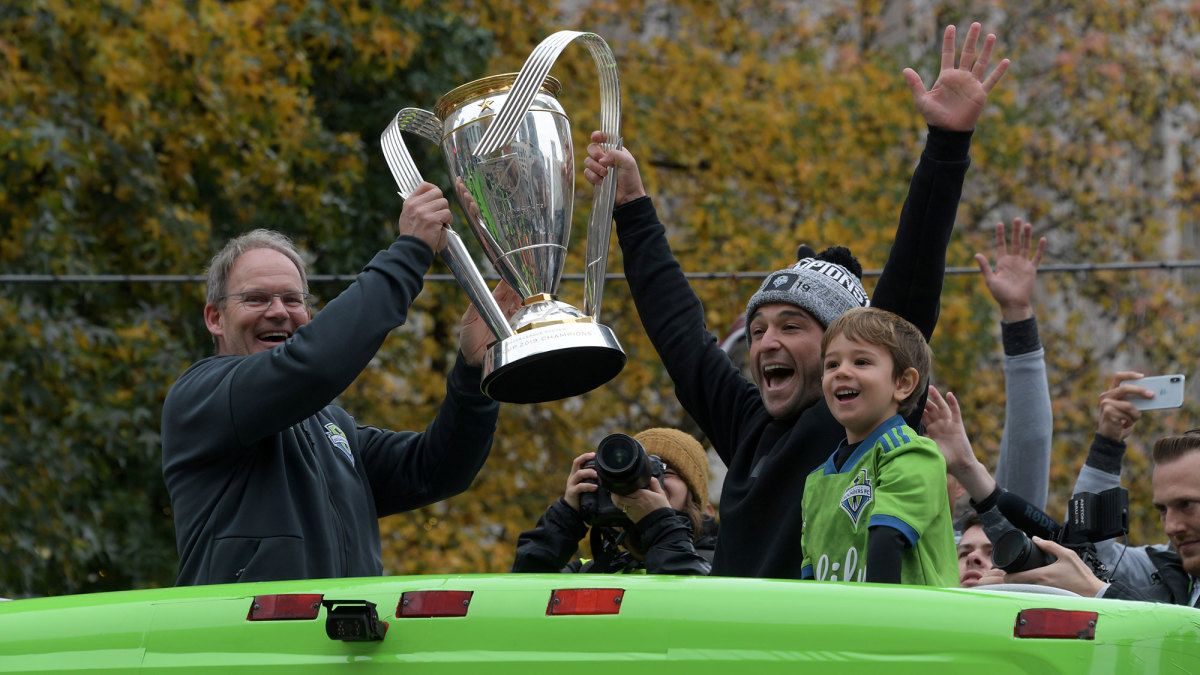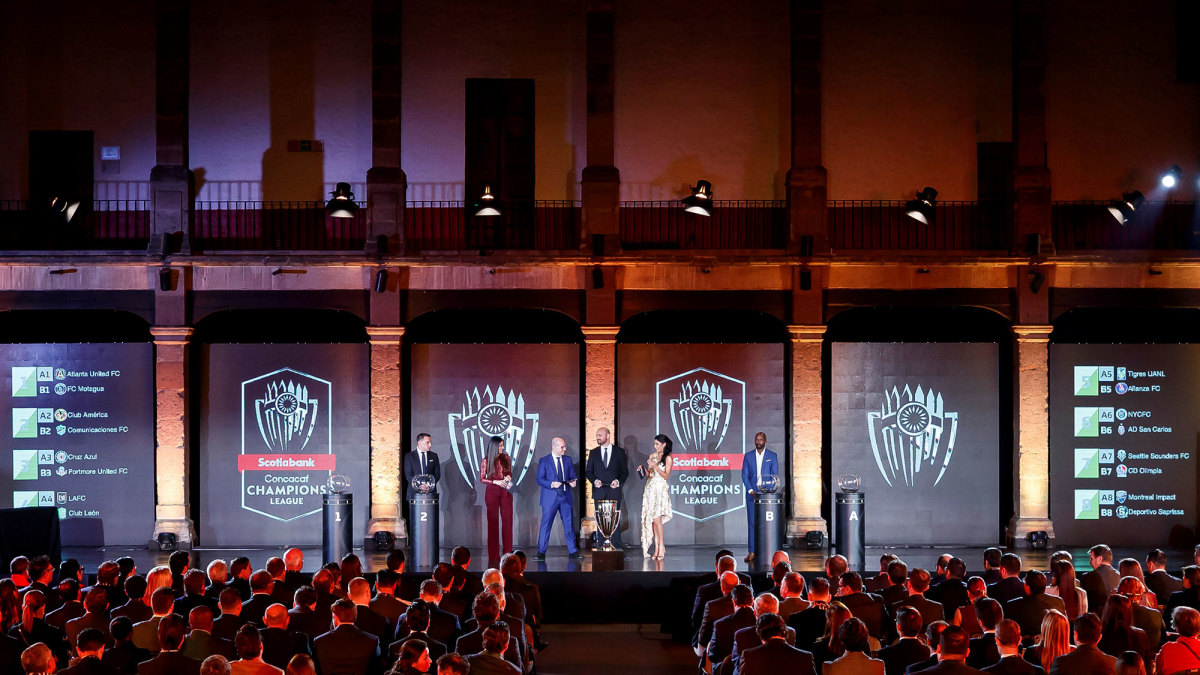Amid MLS's Growth Remains the Unconquered, Humbling CCL Frontier

Get ready for a year of significant self-congratulation.
MLS will be playing its 25th season in 2020, and the growing league will be going to great lengths to let you know it. You’ll hear, read and watch tales of humble beginnings, cavernous concrete arenas, and something called the Miami Fusion before—and cue uplifting music—the likes of David Beckham, Arthur Blank and the residents of the Pacific Northwest catapult MLS to unanticipated heights.
From 10 clubs in 1996, there are now 26 and four more on the way. All-Ivy midfielder Andrew Shue was the attention-grabbing LA signing back then. Now it’s Chicharito. MLS will be reminding you of that progress over and over this year, from the release of retro kits and merch to commemorative events and a full-length feature film.
If it all sounds like vanity, then take comfort in this: the 25th season, like so many before it, begins with MLS’s annual exercise in humility. Every spring, its supposedly inexorable growth gets reality checked at the southern border. Our continental confederation launched its proper and inclusive, home-and-away club championship tournament in 2002. Since then, not a single one of MLS’s 72 entrants managed to win the Concacaf Champions League title. Not one. And only three advanced as far as the finals.
Most of the damage has been done by Liga MX sides, which have captured 14 straight continental crowns. For years, irregular MLS triumphs over Mexican opposition were cause for celebration and catalysts for “see, we’re catching up!” hot takes. In 2018, Toronto FC became the first MLS club to eliminate two Liga MX foes in one tournament. But the Reds still fell short of the trophy, as MLS teams always do.
The more things change...
Stability, new stadiums and training facilities, coast-to-coast expansion, Designated Players, GAM and TAM, awesome social media metrics and all the plain white uniforms Adidas can manufacture haven’t lifted MLS to Concacaf glory. The CCL is the giant “but” in the league’s otherwise inspiring story. And it remains a robust source of untapped legitimacy. Claims on global relevance have to be backed by more than numbers on a balance sheet. Even bricks and mortar aren’t enough. Until you win that trophy and then win it consistently, you’re a business running a soccer league—not a soccer league that means business.
So for the 19th consecutive year we’ll ask, is this finally the year? The MLS champion Seattle Sounders, along with Los Angeles FC, Atlanta United, New York City FC and the Montreal Impact are this season’s lucky contestants. They play Tuesday through Thursday this week in the first leg of the CCL’s round of 16.

This would be a good year to break through. As MLS and Liga MX deepen their partnership, the lopsided nature of the on-field relationship is an increasing embarrassment to the former. The AFL and NFL kind of needed Joe Namath’s guarantee. In addition, MLS’s competitive bona fides could use a boost ahead of the 2022 conclusion of its TV rights deals. After 24 years, there's still not much MLS can say to the legion of American and Latin American fans who believe the best club soccer is played abroad. Meanwhile, the 2021 advent of FIFA’s incomprehensible, quadrennial Club World Cup makes this the last CCL whose winner is guaranteed a shot at a logical, meaningful world championship. MLS’s failure to ever contest that title is among the bigger missed opportunities of its first quarter century.
This also has the look of a year it could actually happen, maybe. Seattle, LAFC and Atlanta all seem to have the continuity, quality and pedigree to go on a run. Each represents the best of modern MLS. They’re well-financed, well-supported clubs that do what they can to compete and win under the league’s fiscal and personnel constraints—constraints that have been conducive to MLS’s slow and steady growth but usually hinder it in the last half hour of a second leg against Monterrey or Club América.
Once MLS roster mechanisms are exhausted, a few more ambitious teams have aimed for the legs and lungs. Seattle is the most recent squad to spend a significant chunk of its preparation in Mexico, escaping its preseason comfort zone in an effort to overcome the advantages in fitness and chemistry enjoyed by most Concacaf foes. Liga MX clubs are six games into their seasons, for example. The Sounders’ round-of-16 opponent, Honduran champion Olimpia, is eight games in.
Coach Brian Schmetzer will have spent a couple weeks training his team at the FMF’s facility in Mexico City before Thursday’s CCL opener in San Pedro Sula.

“The players will probably tell you training has been hard. It’s in the sun. It’s at altitude,” Schmetzer told SI.com. “But training 10 days at altitude will give the players a base of fitness. We’re gearing up pretty fast. Other MLS teams can take their time a little bit in the ramp-up to the season. We’ve had to get after them right from the get-go.”
That quick build-up, and then the international travel and subsequent grind of a longer CCL journey, has taken a toll on teams in the past. Last year’s best MLS performer, Sporting Kansas City, made the CCL semis but not the MLS Cup playoffs. Toronto also missed the playoffs after its run to the 2018 finals. Montreal, the most recent CCL finalist before TFC, turned its 2015 MLS season around only after firing its head coach and signing Didier Drogba.
The CCL hasn’t been a test of MLS’s luck. It’s been a test of what the league and individual clubs are prepared to do to win. Ownership and the league office have pitched in to a point, launching TAM to better bulk up rosters behind the DPs—Mexican squads aren’t nearly as top heavy—and rearranging regular-season schedules. Teams can spend and prepare. But no MLS coach has been fired for CCL failure. Most fans and media still care more about making the playoffs. And until recently, MLS hadn’t reached a point in its own development where there was any point in comparing it to Liga MX.
That’s changed, however. Partnership requires parity. A better TV deal demands a proven product. MLS will have 30 teams soon. It’s now major in every sense but one.

“Our league has grown tremendously in the last five years. Pick any timeline, there’s been substantial growth,” said Schmetzer, a Seattle soccer lifer who’s been on the Sounders sideline since they entered MLS in ’09. “And when those guys plan for the future, I would think there is a conversation that Liga MX is still considered a better league than us. And I would think the ownership group, the commissioner, the people who make the decisions, that would absolutely drive them.”
Some pay lip service to CCL. Others suffer through it. Toronto may have jinxed itself when it built a labeled place for the trophy into the wall of its training facility, but it demonstrated the club’s desire. The Sounders, too, badly want to win this title. In its first MLS decade, Seattle won multiple MLS Cups and multiple U.S. Open Cups, and it signed big names and drew big crowds. The CCL is what’s left to do, at least in this era. And as MLS turns the page to its next quarter century, the Concacaf crown likewise feels like the last box to check.
“One of our stated goals as a club, when we look at what our next 10 years should look like, was to be one of the top clubs in North and South America,” Schmetzer said. “And in order to do that—and if we play in a league that thinks that the same way, there will have to be support from the league for the individual games—we have to compete with Mexican teams.”
The time to prove it is now. Again.
